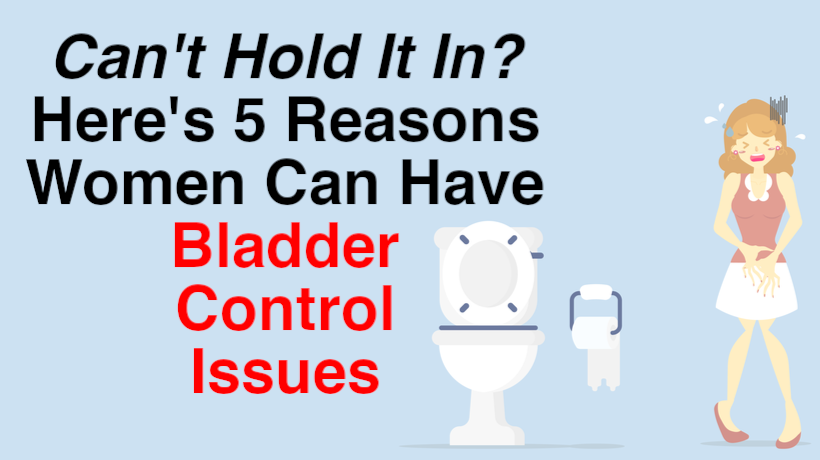Does the phrase “laugh so hard you pee your pants” mean anything to you? More importantly, does it happen to you more often than it should? If you can’t get ahold of your leaky bladder, don’t worry. You’re not alone. Around 200 million people worldwide suffer from some form of urinary incontinence, according to the National Association for Incontinence. Of the 25 million Americans with the condition, 75-80 percent are women.
Urinary incontinence is the loss of bladder control or leaking urine. Your bladder has muscles that tighten when you need to pee, forcing urine out of your bladder and through your urethra. At the same time, the sphincter muscles around your urethra relax, allowing urine to leave your body. Incontinence happens when your bladder muscles suddenly constrict, but the sphincter muscles are not strong enough to pinch the urethra shut, causing urine to leak out.
The most common causes of urinary incontinence are pregnancy, childbirth, or infection, but in these cases, urinary incontinence is likely to go away after a short time. Wondering what could be causing your persistently weak bladder? Here are five reasons you have trouble holding it in.
You have nerve damage
The bladder has muscles and nerves that help it hold or pass urine. Damaged nerves can sometimes send signals to the bladder at the wrong time (like during that big presentation at work), or they can fail to send a signal at all. This damage is usually caused by childbirth or health problems such as diabetes and multiple sclerosis, which can cause nerve damage in the bladder, urethra, or pelvic floor muscles.
You’re constantly constipated
If you’ve suffered from chronic constipation, you may have issues with bladder control. Straining to have a bowel movement can put stress or pressure on the pelvic floor muscles, weakening them and forcing you to deal with those uncomfortable leaks.
You’re menopausal
Some women may experience problems with bladder control after going through menopause. According to research published by the National Institute of Health, low levels of the hormone estrogen after menopause may weaken the urethra, which allows you to hold your pee until you’re ready to urinate. In addition, it could be possible that your bladder and urethra have lost strength with age.
You’re overweight
Having excess weight on the body can put pressure on the bladder, which in turn weakens your muscles over time. If weight is the source of your urinary incontinence, talk to your doctor about the best diet for you. And in the meantime, try some new exercises – especially kegels, which are meant to strengthen your pelvic floor muscles.
You’ve had surgery
Surgeries that involve your reproductive organs, like a hysterectomy, always run the risk of damaging your pelvic floor muscles–especially if the uterus is removed. Damage to your pelvic floor muscles can lead to weaker bladder muscles, which cause urinary incontinence.
If you still can’t figure out what’s causing those marathon sprints to the bathroom, or you have more questions about strengthening your bladder, you should visit your doctor. Your bladder (and underwear) will thank you!
Sources:
https://www.womenshealth.gov/a-z-topics/urinary-incontinence#22
https://www.ncbi.nlm.nih.gov/pmc/articles/PMC1578535/
https://www.nafc.org/urinary-incontinence



